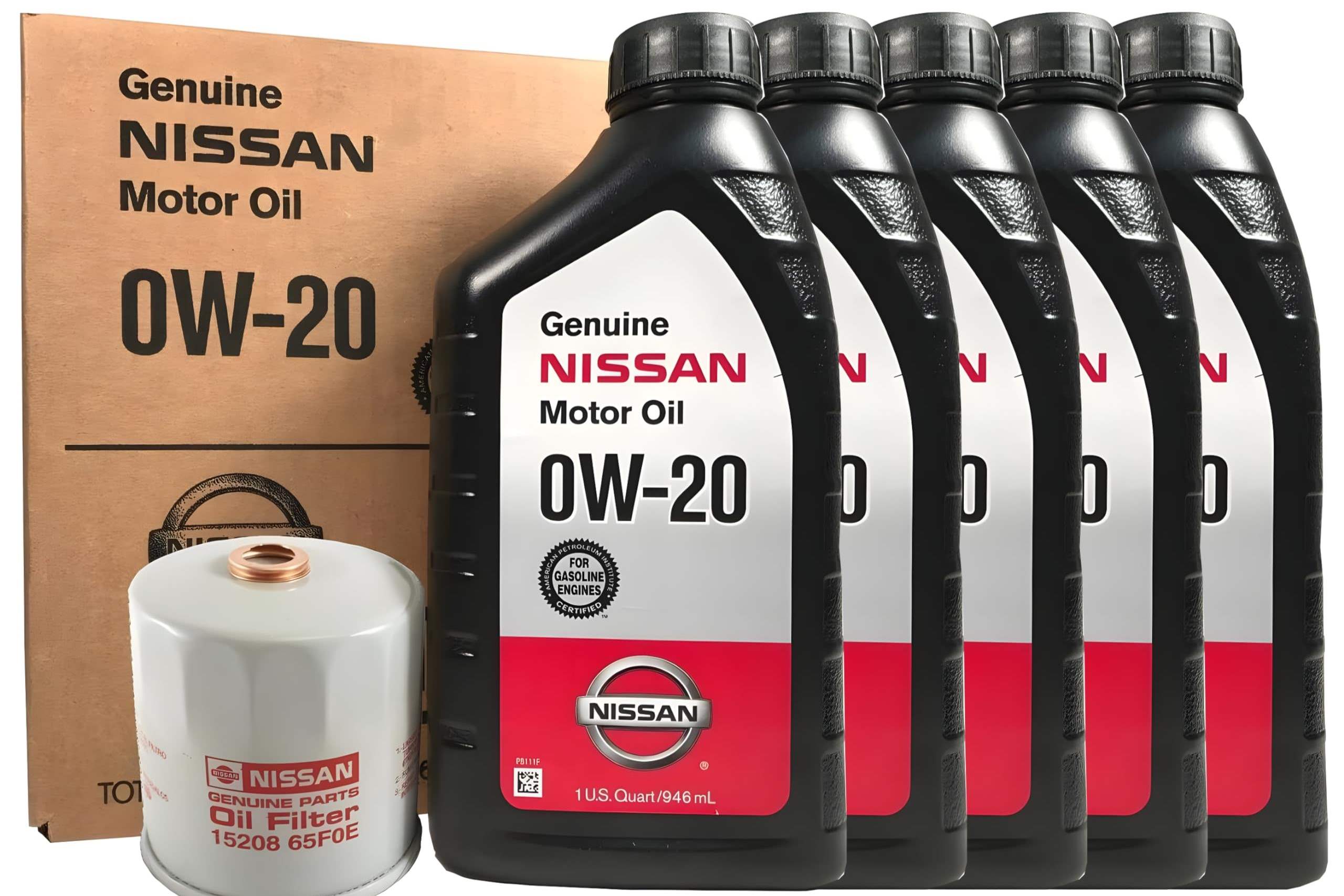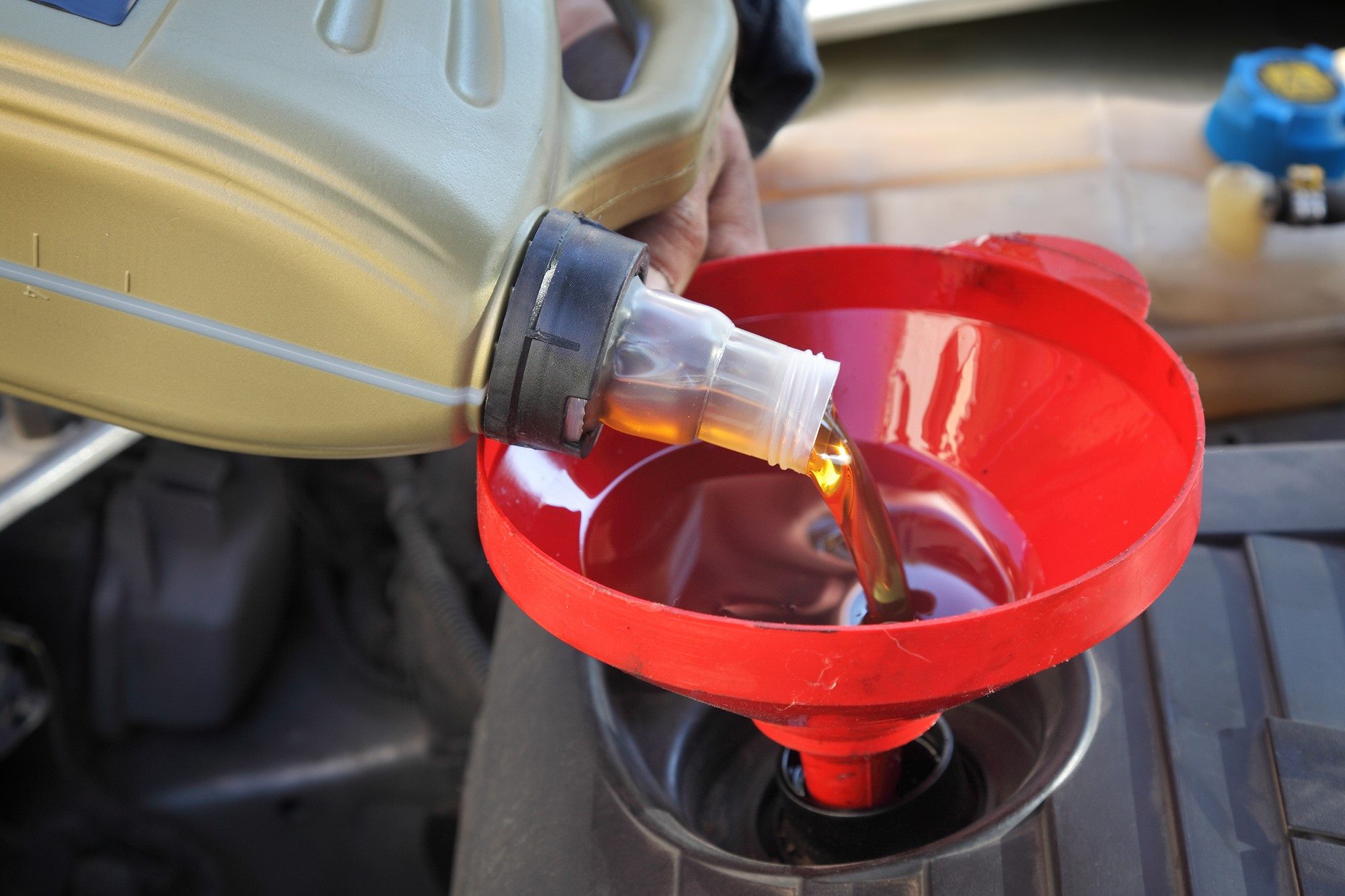Home>Automotive>Using 5W20 Oil As A Substitute For OW20: Is It Possible?


Automotive
Using 5W20 Oil As A Substitute For OW20: Is It Possible?
Published: February 14, 2024
Learn about using 5W20 oil as a substitute for OW20 in automotive engines. Discover if it's a viable option and its potential impact.
(Many of the links in this article redirect to a specific reviewed product. Your purchase of these products through affiliate links helps to generate commission for Noodls.com, at no extra cost. Learn more)
Table of Contents
Introduction
When it comes to maintaining the health and performance of your vehicle, choosing the right motor oil is crucial. The debate between using 5W20 and 0W20 oils has been a topic of interest for many car owners and enthusiasts. Both oils are popular choices for modern engines, but understanding their differences and potential interchangeability is essential for making informed decisions.
In this article, we will delve into the characteristics of 5W20 and 0W20 oils, explore their distinctions, and address the burning question: Can 5W20 oil be used as a substitute for 0W20? By the end of this discussion, you will have a comprehensive understanding of these motor oils, enabling you to make informed choices for your vehicle's maintenance needs.
Understanding 5W20 and 0W20 Oils
Motor oils play a pivotal role in ensuring the smooth operation and longevity of a vehicle's engine. Understanding the characteristics of 5W20 and 0W20 oils is essential for making informed decisions about which oil is best suited for your vehicle.
5W20 Oil
5W20 oil is a multi-grade motor oil that offers versatile performance across a wide range of temperatures. The "5W" in its designation indicates its viscosity rating in cold temperatures, with the "5" signifying its flow characteristics when the engine is started in cold weather. This low-temperature viscosity ensures that the oil flows easily and quickly to critical engine components, providing vital lubrication during cold starts. The "20" denotes the oil's viscosity at operating temperatures, indicating its ability to maintain proper lubrication and protection under normal driving conditions.
0W20 Oil
Similar to 5W20 oil, 0W20 oil is a multi-grade motor oil designed to offer optimal performance in various temperature conditions. The "0W" designation signifies its exceptional cold-temperature flow characteristics, ensuring rapid lubrication during cold starts. This attribute is particularly beneficial in colder climates, where quick engine protection is crucial. The "20" viscosity rating at operating temperatures ensures that the oil maintains its protective properties under normal driving conditions, contributing to the overall health and efficiency of the engine.
Both 5W20 and 0W20 oils are formulated to meet the stringent lubrication requirements of modern engines, providing crucial protection against wear, corrosion, and heat buildup. These oils are engineered to deliver consistent performance and maintain the engine's efficiency over extended periods, contributing to enhanced fuel economy and reduced emissions.
Understanding the composition and performance attributes of 5W20 and 0W20 oils is the first step in evaluating their interchangeability and suitability for specific driving conditions and vehicle requirements. In the following section, we will delve into the key differences between these two motor oils to shed light on their unique characteristics and potential interchangeability.
Differences Between 5W20 and 0W20 Oils
The primary distinction between 5W20 and 0W20 oils lies in their cold-temperature viscosity ratings. The "W" in both designations stands for "winter," indicating the oil's flow characteristics in cold conditions. While both oils are engineered to provide exceptional cold-start protection, their viscosity properties differ slightly, impacting their performance in specific temperature ranges.
5W20 oil, with its "5W" cold-temperature rating, flows slightly less readily in extremely cold conditions compared to 0W20 oil. This difference is attributed to the slightly higher viscosity of 5W20 oil at low temperatures, which can affect its ability to reach critical engine components swiftly during cold starts. On the other hand, 0W20 oil, with its "0W" rating, offers superior flow characteristics in extremely cold temperatures, ensuring rapid lubrication and protection upon ignition, especially in frigid climates.
At operating temperatures, both oils share the same "20" viscosity rating, signifying their ability to maintain proper lubrication and protection under normal driving conditions. This uniform viscosity at operating temperatures ensures that both 5W20 and 0W20 oils deliver consistent performance and safeguard critical engine components from wear and heat-related damage.
The differences in cold-temperature viscosity between 5W20 and 0W20 oils are carefully engineered to address the specific lubrication needs of modern engines in diverse climate conditions. While 5W20 oil provides reliable cold-start protection and maintains consistent viscosity at operating temperatures, 0W20 oil excels in extremely cold environments, offering enhanced flow characteristics during initial engine startup.
It is important to note that both 5W20 and 0W20 oils meet the stringent lubrication requirements of modern engines, contributing to their longevity and efficient operation. However, the subtle differences in their cold-temperature viscosity ratings make each oil uniquely suited for specific climate conditions and driving environments.
Understanding these distinctions is crucial for determining the most suitable oil for your vehicle based on the prevailing climate and driving patterns. In the subsequent section, we will address the burning question: Can 5W20 oil be used as a substitute for 0W20? This exploration will shed light on the interchangeability of these oils and provide valuable insights for vehicle owners seeking optimal maintenance solutions.
Can 5W20 Oil be Used as a Substitute for 0W20?
The question of whether 5W20 oil can serve as a substitute for 0W20 oil is a topic of considerable interest and debate among car owners and enthusiasts. While both oils share the same viscosity rating at operating temperatures, their differing cold-temperature viscosity properties raise important considerations regarding their interchangeability.
5W20 oil, with its slightly higher cold-temperature viscosity compared to 0W20 oil, is formulated to provide reliable cold-start protection and maintain consistent viscosity under normal driving conditions. However, the crucial factor to consider when contemplating the substitution of 5W20 for 0W20 is the specific climate and temperature conditions in which the vehicle operates.
In regions with moderate to warm climates, where extremely cold temperatures are infrequent, using 5W20 oil as a substitute for 0W20 may be a viable option. The slightly higher cold-temperature viscosity of 5W20 oil is unlikely to pose significant challenges in such environments, as the engine's cold-start lubrication requirements can still be adequately met.
However, in colder climates characterized by prolonged periods of sub-zero temperatures, the superior cold-temperature flow characteristics of 0W20 oil become particularly valuable. In these frigid conditions, the use of 5W20 oil as a substitute for 0W20 may compromise the engine's ability to receive swift and effective lubrication during cold starts, potentially leading to increased wear and reduced engine protection.
It is important to emphasize that while 5W20 oil may be suitable as a temporary substitute for 0W20 in certain conditions, it is essential to adhere to the vehicle manufacturer's recommendations regarding oil viscosity to ensure optimal engine performance and longevity. Consulting the vehicle's owner's manual or seeking guidance from a qualified automotive professional can provide valuable insights into the most suitable oil for specific driving environments.
Ultimately, the decision to use 5W20 oil as a substitute for 0W20 should be informed by a thorough understanding of the prevailing climate conditions, the vehicle's lubrication requirements, and the potential impact on engine performance. By carefully evaluating these factors, vehicle owners can make informed choices that prioritize the health and efficiency of their engines while ensuring reliable cold-start protection and consistent lubrication under varying temperature conditions.
Potential Risks and Considerations
When contemplating the potential substitution of 5W20 oil for 0W20, it is imperative to consider the inherent risks and critical factors that may impact the performance and longevity of the vehicle's engine. While the interchangeability of these oils may seem plausible under certain conditions, overlooking key considerations can lead to adverse effects on engine operation and durability.
One of the primary risks associated with using 5W20 oil as a substitute for 0W20 pertains to the engine's cold-start lubrication. In colder climates, where rapid and effective lubrication during initial startup is paramount, the slightly higher cold-temperature viscosity of 5W20 oil may impede its ability to swiftly reach critical engine components. This can result in increased wear, reduced engine protection, and potential long-term damage, compromising the overall health of the engine.
Furthermore, the use of 5W20 oil as a substitute for 0W20 may impact the vehicle's fuel economy and emissions performance. While both oils are engineered to deliver optimal lubrication and protection, their subtle viscosity differences can influence the engine's operational efficiency, potentially affecting fuel consumption and emission levels. In scenarios where precise oil viscosity is crucial for achieving peak fuel economy and emission control, the substitution of 5W20 for 0W20 may lead to suboptimal performance in these critical areas.
Another vital consideration revolves around adherence to the vehicle manufacturer's recommendations and warranty specifications. Deviating from the prescribed oil viscosity guidelines, as outlined by the manufacturer, can have implications for the vehicle's warranty coverage. In the event of engine-related issues, the use of an unsanctioned oil viscosity may void warranty protection, leaving the vehicle owner liable for potential repair costs and associated expenses.
Additionally, the long-term impact of using 5W20 oil as a substitute for 0W20 on the engine's internal components and overall durability cannot be overlooked. While the immediate effects may not be readily apparent, prolonged use of an oil with a different viscosity profile than recommended can contribute to accelerated wear, diminished engine efficiency, and heightened susceptibility to performance-related issues over time.
In summary, the potential risks and considerations associated with substituting 5W20 oil for 0W20 underscore the importance of aligning oil selection with the specific lubrication requirements of the vehicle's engine. By carefully evaluating the impact on cold-start lubrication, fuel economy, emissions performance, warranty compliance, and long-term engine health, vehicle owners can make informed decisions that prioritize the longevity and optimal operation of their vehicles. Consulting with qualified automotive professionals and adhering to manufacturer guidelines are essential steps in mitigating potential risks and ensuring the sustained health of the engine.
Conclusion
In conclusion, the debate surrounding the interchangeability of 5W20 and 0W20 oils underscores the critical importance of aligning oil selection with the specific lubrication needs of a vehicle's engine. While both oils share the same viscosity rating at operating temperatures, their differing cold-temperature viscosity properties necessitate careful consideration when contemplating substitution.
The use of 5W20 oil as a substitute for 0W20 may be feasible in moderate to warm climates where extremely cold temperatures are infrequent. However, in colder regions characterized by prolonged sub-zero conditions, the superior cold-temperature flow characteristics of 0W20 oil become indispensable for ensuring swift and effective lubrication during cold starts.
It is essential for vehicle owners to prioritize the health and efficiency of their engines by adhering to the manufacturer's recommendations regarding oil viscosity. Deviating from these guidelines can lead to adverse effects on engine performance, fuel economy, emissions, and long-term durability.
Consulting the vehicle's owner's manual or seeking guidance from qualified automotive professionals is crucial for making informed decisions that safeguard the engine's longevity and operational efficiency. By evaluating the prevailing climate conditions, lubrication requirements, and potential impact on engine performance, vehicle owners can navigate the complexities of oil selection with confidence and clarity.
Ultimately, the decision to use 5W20 oil as a substitute for 0W20 should be guided by a comprehensive understanding of the specific driving environment and the engine's lubrication needs. By prioritizing optimal cold-start protection, consistent lubrication under varying temperature conditions, and adherence to manufacturer guidelines, vehicle owners can ensure the sustained health and efficiency of their engines, contributing to a reliable and enjoyable driving experience.














